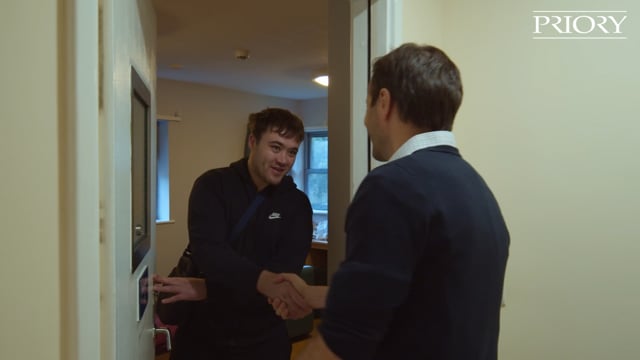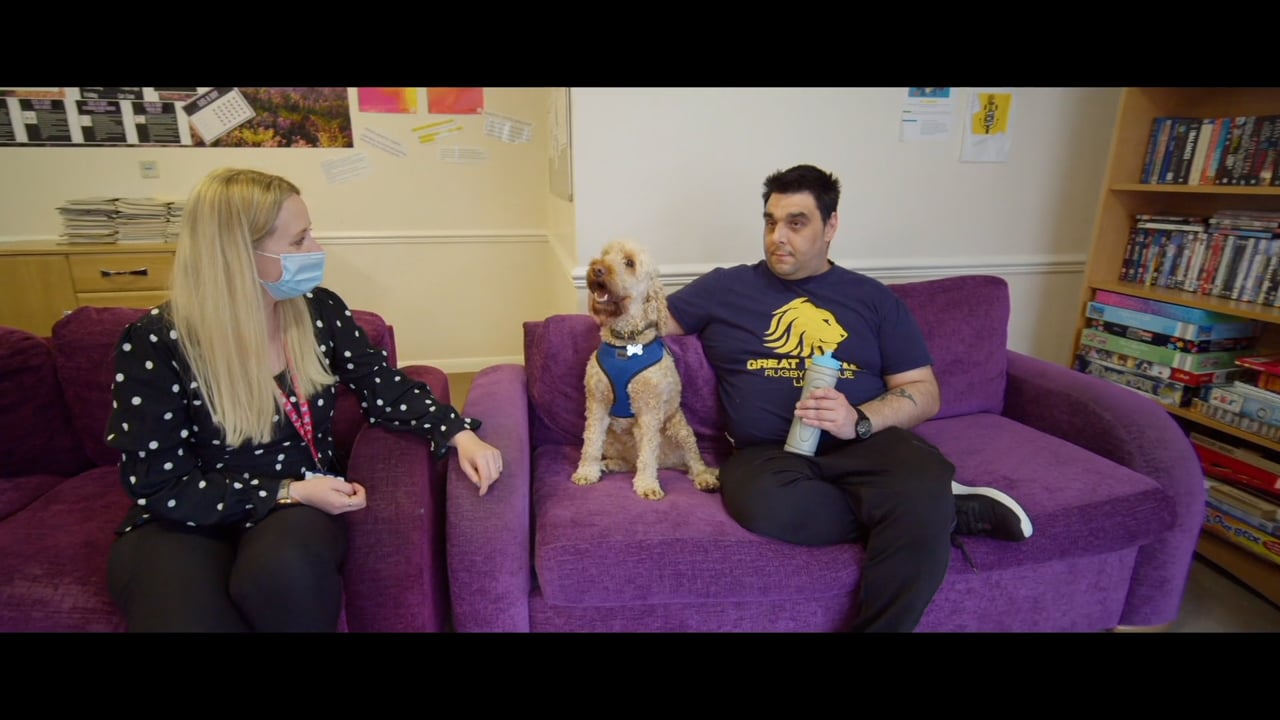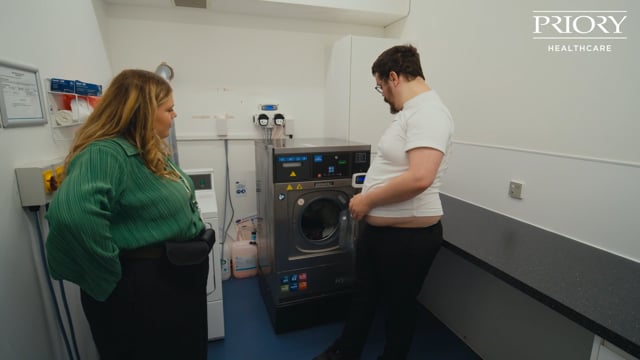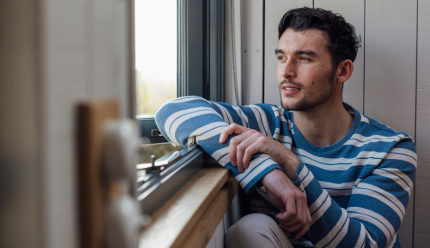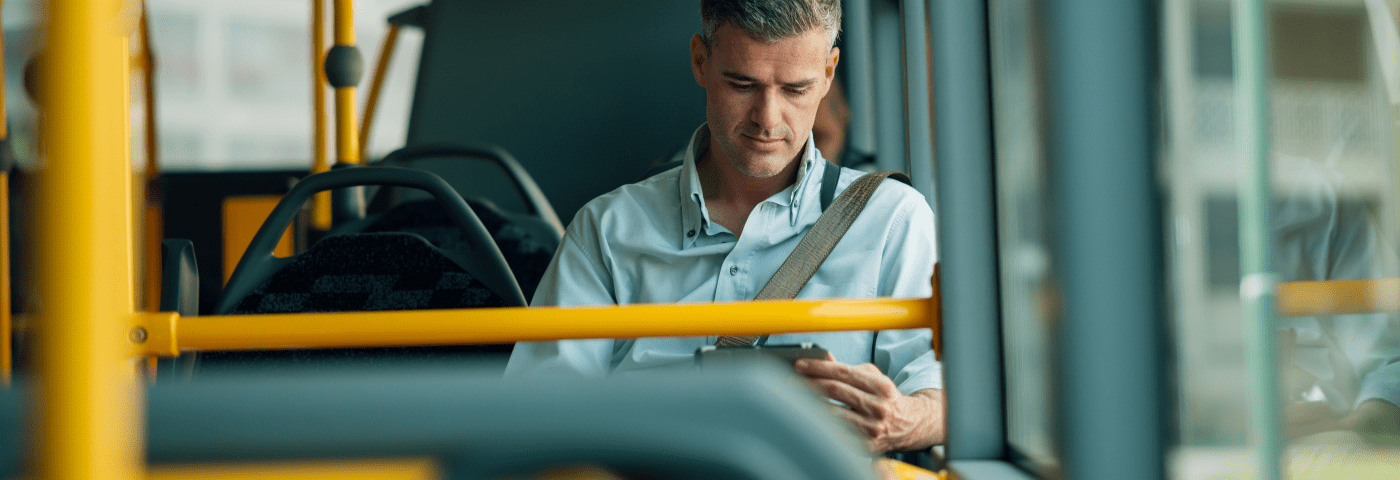About this location
Based in Leeds, West Yorkshire, Priory Hospital Mill Garth is a level 2 rehabilitation service for adult males. We support people with a range of mental health disorders.
We believe that anyone with a mental health condition should be given the best chance possible to lead a happy and fulfilling life, and our aim is to provide individuals with the confidence and skills to move or return to the community.
Services at a glance
Contact us
Click here to enable this content
Services
Our comprehensive rehabilitation services provide support for people with complex mental health needs. We align our services with the recommendations of the Joint Commissioning Panel for Mental Health (JCPMH), ensuring our patients are given the highest quality care to enable an appropriate transition back home or into community services, wherever possible.
Ward break down
- Harewood - males with complex and challenging behaviours with co-morbid LD/ASD
- Bramham - males with complex and challenging behaviours with co-morbid LD/ASD
Conditions treated
We are able to support people with:
- Severe and enduring mental health needs
- Personality disorders
- Behaviours that challenge
- Self-harm
We can also support people with the following challenges alongside their primary diagnosis:
- Autism
- A learning disability
We are able to support informal patients or those detained under the Mental Health Act (MHA).
Treatment approaches
At Mill Garth, we offer an individualised, person-centred approach to all of our patients.
We all adopt an integrated treatment approach, and our care plans are developed alongside the people who are staying with us. We encourage everyone to be a part of the decisions that are made for their treatment and recovery. Alongside this, all patients’ recovery pathways are reviewed and discussed regularly with their primary nurses. This enables a collaborative approach to help support the patient in achieving their identified goals, within our overall recovery-focused methodology.
By supporting people with self-care, productivity and leisure, we are addressing all aspects of a person’s life. We help them to develop skills in the areas where they need support, to not only help them with their independence while they are here with us at Mill Garth, but so they can take these skills back into the community.
Our assessment and treatment options are overseen by a full and diverse multidisciplinary team (MDT).
We offer:
- Cognitive behavioural therapy (CBT)
- Occupational therapy (OT)
- Community-focused rehabilitation
- Therapy dogs
- Therapy rabbits
- Radically open dialectical behaviour therapy (RO-DBT)
People within our service tend to stay with us on a short to long-term basis, usually between 6 months to 2 years.
Our team
Our expert team has extensive experience in working with people with diverse personalities. Our team consists of:
- Hospital director
- Director of clinical services
- Ward manager
- Deputy ward manager
- Head of OT
- Clinical psychologist
- Responsible clinician
Therapeutic and community-based activities
We offer a range of therapeutic and community-based activities as part of a full treatment programme. We want to support people to become more confident and independent, preparing them to move through their treatment pathway towards community living.
Every patient is supported to develop a structured week, according to individual presentations, with the aim of addressing any outstanding needs. This prepares the person for a safe and successful transition beyond Mill Garth and, where possible, into the community.
Our therapeutic and community-based activities include:
- Therapeutic and activity sessions
- Psychological therapies
- Coping skills
- Opportunities to work in the patient-led café
Our facilities and environment
Our garden offers secure fencing, a patio area with furniture, a lawn, a shelter and planting areas.
Our bedrooms
All of our bedrooms are single-occupancy and have an en-suite bathroom. Patients are encouraged to personalise their bedrooms while they are staying with us. We provide:
Exclusion profile
- People under the age of 18
- History of arson
- History of absconsion
- Recent violence and aggression
- People who need help with self-care
Pathways
Priory’s network of high quality facilities enables us to offer joined-up care pathways with our dedicated residential services. We offer programmes which integrate healthcare treatment and therapy, which are tailored according to individual needs, in an appropriate setting. Our strength is that we can provide a seamless transition for the individual as they progress between higher and lower dependency services.
Everyone who stays with us has a care plan which is developed with the objective of a return to the community as soon as feasible. This includes either returning home or to a supported living unit. This may be with Priory Adult Care or an alternative provider.
At Mill Garth, we provide BTPs for autistic people and people with a learning disability. Individuals may present with complex and challenging needs, including aggression and sensory issues, and may benefit from the time and space to learn how to self-regulate their own emotions.
The core aim of our BTPs is to offer an environment with the least restrictive practices, where patients who are struggling in a group environment can develop their independence skills, enabling them to transition to community living, when possible.
For more information on Priory’s BTPs, view our dedicated BTP page.
BTP break down
- Mill Pond View
- Mill Beck View
Comments from our patients and their family and friends
The treatment here has helped me. The hospital has loads of activities and the staff here are very approachable. The therapy dogs are really good company
Information for family and friends
How do home visits work?
We support people staying with us to attend family events and visit home. We will work with them and their relatives to ensure possible risks are managed and that everyone is supported.
What is your visitation policy?
We welcome visitors any time, however we do ask that visits are organised in advance with our MDT.
Will I be involved and kept up to date with my loved one’s care and wellbeing?
Family members can attend all patient meetings, either in person or virtually. Also, whenever family and friends come for a visit, they will be invited to speak to members of the nursing team about their loved one’s care and progress.
Will my loved one be able to have a phone or call me?
Access to mobile phones is assessed on an individual basis. If the decision is made that someone is unable to have access to a mobile phone, arrangements will be made for them to contact their family and friends.
What type of things are families expected to provide, and what is provided by the home?
We provide all furnishings and food on-site. Patients are expected to bring their own clothing and toiletries, as well as any additional room décor, subject to a risk assessment for safety reasons.
What are the bedrooms like?
All of our bedrooms are furnished, and residents are supported to personalise them to suit their needs and wishes. They are all single person, en-suite rooms.
Are external doors kept locked?
All of our external doors are locked. However, every person staying with us will be individually assessed for any risks to see what security is needed.
What do service users eat and how do meal times work?
Breakfast, lunch, tea and supper are served in our patient-led café. Snacks are also available outside of mealtimes.
How does laundry work?
We have a laundry so everyone can do their own washing and drying, during an allocated slot. Our nursing staff can provide support to anyone who needs it.
Is there anything they can’t bring or have?
We have a restricted and prohibited items list, which is reviewed and updated regularly. This can be seen on request. Banned items include alcohol, lighters, matches and flammable liquids.
Are pets allowed?
Unfortunately, pets are not allowed. However, there are two therapy dogs which come on to the unit and several therapy rabbits live in the hospital garden.
How do activities work?
Everyone staying with us has an individualised activity programme, which is developed in conjunction with the MDT.
Do service users and families have an input into the service user’s care plans?
Care plans are devised by the primary nurse and the patient. Patients’ families and friends are invited for their opinions, all of which will be considered.
What are the car parking facilities?
There is limited free car parking on-site, but on-street car parking nearby.
What is the smoking policy? Can service users buy cigarettes?
Priory Hospital Mill Garth is a non-smoking site and we offer nicotine replacement therapy (NRT) to those who need/want it.
How is treatment accessed and funded?
We don’t take referrals directly from individuals and families. Instead, the first step will be for you to reach out to the person’s GP so that they can be referred and funded through the correct NHS channel. Depending on the type of support needed, this could include local authority funding, NHS funding, joint funding between the local authority and NHS, or direct payments. Please note, referrals for NHS or local authority funded services must come from a referring organisation.
How to make a referral
Our customer service centre provides 24/7 support for NHS mental health enquiries and referrals. Our customer referral co-ordinators can support you from your first call right through to the enquiry conclusion, providing updates throughout the process. We offer 24/7 crisis referrals, fast access to bed availability and placements, and a single access point for end-to-end enquiry management.













